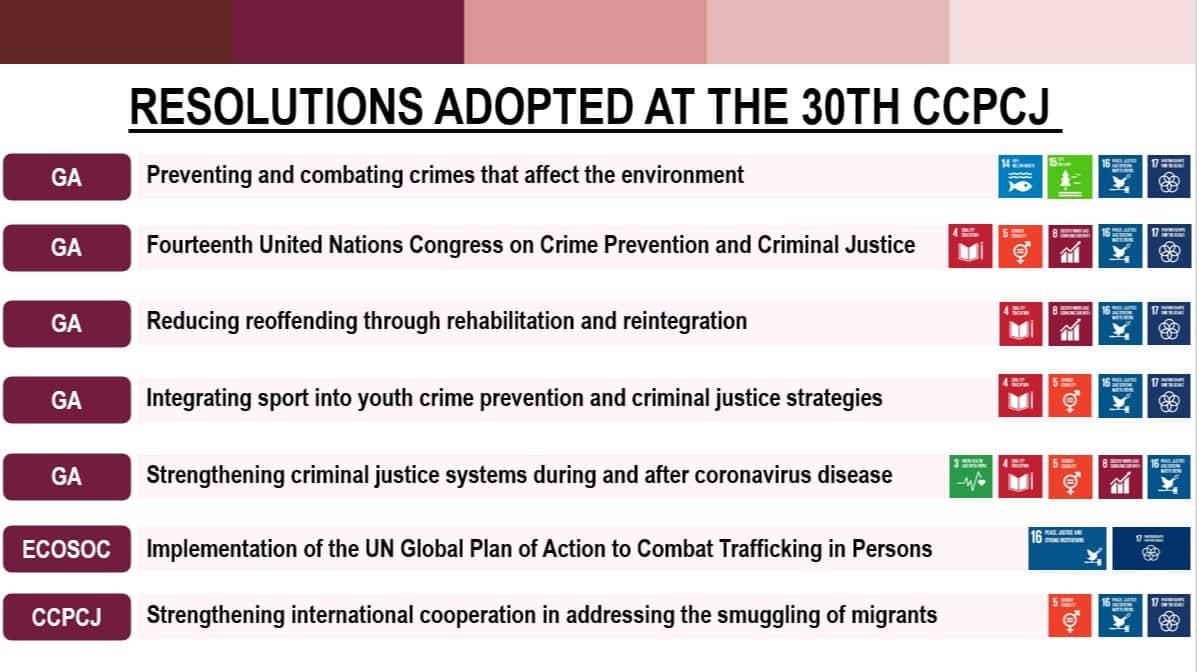VIENNA, JULY 8 – As Chair of the UN Crime Commission, Ambassador Alessandro Cortese, the Permanent Representative of Italy to the United Nations in Vienna, took part in a side event on the margins of the current ECOSOC session. Aim of the event was to illustrate to a New York-based audience the impact of COVID-19 on drugs and crime through the lenses of to Vienna-based commission, the Commission on Narcotic Drugs and the Commission on Crime Prevention and Criminal Justice.
The pandemic has hit all spheres of our daily life, affecting countries, communities and individuals. Crime prevention and criminal justice were no exception, said Cortese: criminal justice systems around the world face challenges in fulfilling their mandates due to the prolonged lockdowns, while criminal organizations exploit the new realities by adapting their “modi operandi” or developing new illicit activities.
 The Ambassador argued that, in order to contribute to “build back better”, a coordinated and joint multilateral response is needed to prevent and counter transnational crime. He explained that the CCPCJ, being one of the functional commissions of the Economic and Social Council, is the principal policymaking body of the United Nations in the field of crime prevention and criminal justice. It acts as the preparatory and implementing body for the United Nations congresses on crime prevention and criminal justice. Together with its sister Commission on Narcotic Drugs, the CCPCJ acts as the governing body of the United Nations Office on Drugs and Crime.
The Ambassador argued that, in order to contribute to “build back better”, a coordinated and joint multilateral response is needed to prevent and counter transnational crime. He explained that the CCPCJ, being one of the functional commissions of the Economic and Social Council, is the principal policymaking body of the United Nations in the field of crime prevention and criminal justice. It acts as the preparatory and implementing body for the United Nations congresses on crime prevention and criminal justice. Together with its sister Commission on Narcotic Drugs, the CCPCJ acts as the governing body of the United Nations Office on Drugs and Crime.
The CCPCJ held its thirtieth session, in May, gathering – in person or connected from remote – over 1,115 participants representing 125 Member States, 7 UN bodies and agencies, 15 intergovernmental organizations and 49 non-governmental organizations.
At the margins of the May meeting, 84 side events were organized in a virtual format.
These numbers show that despite the pandemic, the Commission – with the support of the UNODC Secretariat – has not only ensured business continuity, but has also managed to offer a platform for meaningful and inclusive deliberations. Seven resolutions were adopted covering different topics, all containing elements that contribute to the implementation of specific sustainable development goals:
- Preventing and combating crimes that affect the environment;
- Fourteenth United Nations Congress on Crime Prevention and Criminal Justice;
- Reducing reoffending through rehabilitation and reintegration;
- Integrating sport into youth crime prevention and criminal justice strategies;
- Strengthening criminal justice systems during and after the coronavirus disease;
- Implementation of the United Nations Global Plan of Action to Combat Trafficking in Persons; and
- Strengthening international cooperation in addressing the smuggling of migrants.
Most of the resolutions adopted in May reflect the need to take into account the challenges either posed or further exacerbated by the pandemic, while designing and implementing crime prevention and criminal justice policies, Cortese recalled, stressing a few key messages, among which the importance of strengthening international cooperation and that the efforts to recover from the pandemic should be guided first and foremost by the principle of “leaving no one behind”. Last but not least, the importance of collecting and sharing data as a crucial tool for better understanding the impact of COVID-19 on crime and the array of implications it has on society. (@OnuItalia)

